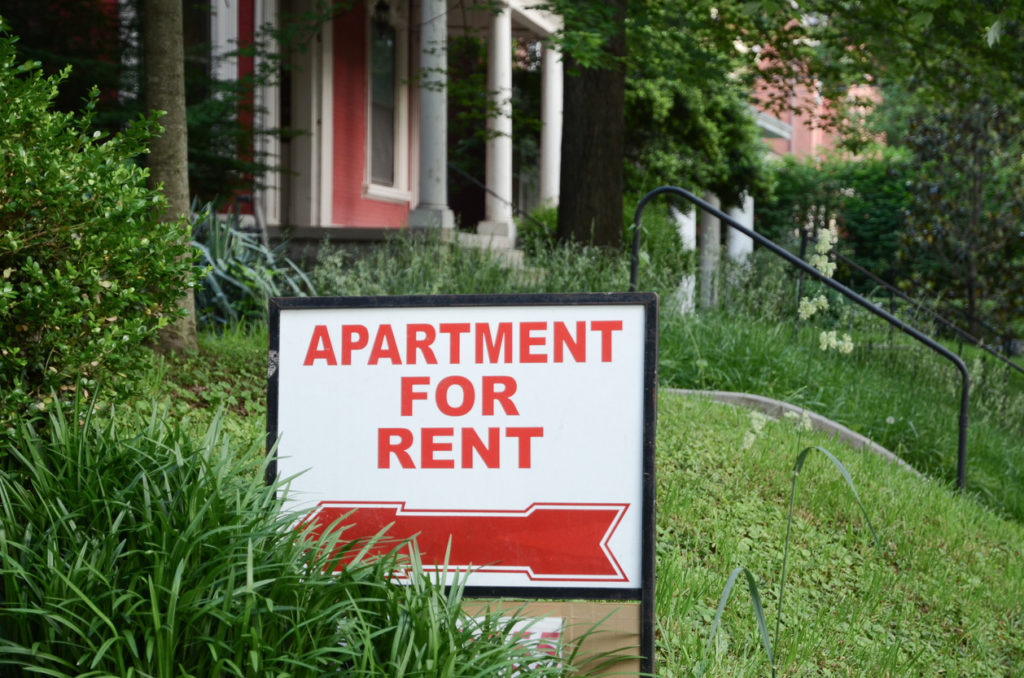Opinion: Landlords Objecting to Inspections. Really?

Photo: istock

The Amherst Landlord Association is complaining about a proposed inspection every 5 years because it is 1) too costly, and 2) it conflicts with tenants’ rights to privacy. Let’s have a look.
The recent article on a proposed enhanced rental housing inspection program in the Gazette/Bulletin, a bit short on details, and long on whining from landlords, mentioned that the current fee for a rental permit is $250 for non-owner-occupied parcels (Parcels that are owner-occupied and with no more than 6 units will still be charged the old fee of $100). Doubling this to finance an “enhanced inspection program” (once every 5 years) one landlord insisted, would force a rent increase of $30-60/month. OK, time out for some math… Currently, no more than 4 unrelated adults are legally permitted in a single-family house. Bedrooms are typically bringing in from $800-$1400/month in student rentals, with typical rents around $1000/bedroom. $1000/month/bedroom x 4 bedrooms/house x 12 months means that landlords make around $48,000/year from a single-family house. A $500 rental permit fee per year (double the current rate) is just a tad over 1% of what a landlord rakes in for single family rental units. This does not seem like a terrible hardship, or a reason to raise rents by $720/year.
On to the privacy issue. No one is suggesting that jack-booted inspectors are going to show up unannounced and rifle through tenants’ belongings. Rental agreements can simply state that inspections will happen at an appointed time to look for health and zoning issues. Alternatively, inspections can (or better, should) be timed to occur in between tenants’ occupancy.
I’m guessing here, but the students who live across the street from my wife and I would certainly not have minded if someone enforced State zoning laws that require a house be weather-tight and free of vermin (it wasn’t the case three years ago), or that there was not mold and mildew growing all over (as there was two years ago), or that holes punched in the sheet rock by previous tenants were repaired (as was not the case last summer when the current students moved in). I’m quite sure neighbors would not mind if landlords were required to maintain their properties, or that tenants of neighboring properties did not park on lawns, or leave furniture and trash strewn about. Placing the onus for instigating an inspection / bylaw enforcement on the complaints of cranky neighbors, or less likely, disgruntled tenants who have had difficulty finding a rental to begin with, is nothing if not coddling landlords at the expense of tenants and abutters.
Amherst can and should go further in regulating rentals. Another necessary step is to make sure residents and renters can learn who actually owns non-owner-occupied properties. Amherst should require that all LLC partners on rental permits are disclosed to the public on the town website. Some states do not require the identification of LLC partners, but Massachusetts does according to the office of the Secretary of State. They are available here. Knowing who owns what is an essential part of making property rental a free market transaction, by allowing neighbors of rental properties and prospective renters to identify problem landlords.
John Varner is a resident of Amherst’s District 3

You’re only doing the math for absentee landlords and those who price gouge for rowdy student housing. You are not doing the math for someone who rents out 1 or 2 small, well-managed, non-owner occupied properties with quiet , hard working renters (and landlords). Those (renters and landlords) would have to take time, not to repair or maintain what they normally already do, but to organize, schedule and be present for unnecessary bureaucracy. All that on a below market rent – not even 800 per bedroom… These regulations target all for the sins of a few for an unfair cost that could be adjusted for property size, purpose, and type of management.
It is certainly true that some landlords are already doing a good job managing their properties. Unfortunately, there are many who are not, and the whole town and it’s character are suffering for it. If landlords can hide behind LLCs, how are residents and renters supposed to identify which landlords in town are “good” and which are “bad”? Inspections, coupled with the release of landlords’ identities will help identify the good from the bad. Amherst is currently unable to perform adequate inspections of its numerous rental units, and it must raise money to do so. The devil is in the details, and the details have not been worked out. Among the questions to be answered:
What frequency of inspection is adequate? The corollary:
Should residents believe what some landlords seem to advocate, i.e.: that landlords should be able to “self-certify”, or that inspections need only happen after neighbors or renters file complaints?
Should all Amherst residents pay so landlords can have their rental properties inspected, or is it more fair to expect the people who make money off properties to pay for inspections?
What constitutes a “fair” fee? Should it be a token fee, or actually reflect the true cost of inspection and the bureaucracy necessary to sustain the inspection system?
Even if fee increases are passed directly on to tenants, is a rent increase of a percent or two to insure a rental unit is in compliance with health, safety and building codes excessive? E.G.: If a tenant pays $1000/month now for a place that may or may not be safe and healthful, would they be burdened by paying $1020/month to insure their residence is up to code? To put this in relatable terms, we are talking about the cost of half a cup of coffee or a quarter of a can of IPA per day here.
In a democratic form of government, people get input during the passage of laws, and, win or lose, obey laws that are passed. Suing the town, as the Landlord Association is threatening to do, will cost every Amherst citizen money. Does the threat to sue constitute an attempt to rectify an unjust regulation, or is it extortion?
If investing in properties is too burdensome, should landlords instead consider investing in the stock market, where investment dollars actually help to grow the economy for everyone?